What are the top 5 disadvantages of HDPE pipes?
Mar. 27, 2024
High-density polyethylene (HDPE) pipes have become a popular choice for various applications, thanks to their durability, flexibility, and resistance to corrosion. However, like any other material, HDPE pipes also come with their own set of disadvantages that users should be aware of. In this blog post, we will discuss the top 5 disadvantages of HDPE pipes.
1. Limited temperature range: One of the main disadvantages of HDPE pipes is their limited temperature range. HDPE pipes have a maximum operating temperature of around 140°F (60°C), which means that they are not suitable for high-temperature applications. If exposed to temperatures above their maximum operating limit, HDPE pipes can deform, leading to leaks and failures. This limitation makes HDPE pipes unsuitable for applications where high temperatures are common, such as in industrial processes or hot water distribution systems.
2. Susceptibility to UV degradation: HDPE pipes are susceptible to degradation caused by ultraviolet (UV) radiation from the sun. When exposed to sunlight for extended periods, HDPE pipes can become brittle and degrade, leading to cracks and leaks. This makes HDPE pipes unsuitable for outdoor applications where they are exposed to direct sunlight, such as above-ground pipelines or outdoor water distribution systems. To mitigate this disadvantage, manufacturers often include UV stabilizers in the material or use protective coatings to increase the lifespan of HDPE pipes.
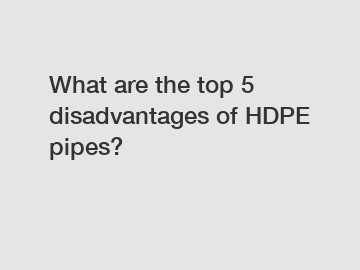
3. Low resistance to certain chemicals: While HDPE pipes are resistant to a wide range of chemicals, they are prone to degradation when exposed to certain substances. HDPE pipes are not recommended for applications involving strong oxidizing agents, such as chlorine or hydrogen peroxide, as these chemicals can react with the material and cause it to degrade over time. Additionally, HDPE pipes are not suitable for use in environments with high concentrations of aromatic hydrocarbons or solvents, as these substances can compromise the integrity of the material. Users should carefully consider the chemical compatibility of HDPE pipes before selecting them for specific applications.
Additional reading:Get Your HDPE Welding Machine in South Africa Now!
Comparing High Density Polyethylene vs PVC: Differences
Ultimate Guide: HDPE Pipe Price List 3
Which is the superior choice: HDPE or PVC?
Which is the superior plumbing option: polyethylene pipe vs PVC?
Top HDPE Welding Machines for Sale South Africa
What's the Difference? High Density Polyethylene vs. PVC.
4. Poor fire resistance: HDPE pipes have poor fire resistance compared to other materials, such as steel or copper. When exposed to fire, HDPE pipes can melt and deform quickly, leading to structural failure and potential safety hazards. In applications where fire resistance is a critical requirement, such as in building codes or fire protection systems, HDPE pipes may not be the best choice. It is important to consider the fire safety regulations and requirements of the application before choosing HDPE pipes for installation.
5. Limited compatibility with certain joining methods: HDPE pipes are typically joined using heat fusion techniques, such as butt fusion or electrofusion. While these joining methods are effective and reliable, they require specialized equipment and trained personnel for proper installation. Additionally, HDPE pipes are not compatible with traditional joining methods, such as solvent welding or mechanical couplings, which limits the flexibility and ease of installation compared to other materials. Users should be aware of the specific joining requirements of HDPE pipes and ensure that they have the necessary equipment and expertise for successful installation.
In conclusion, while HDPE pipes offer many advantages in terms of durability and corrosion resistance, they also have several disadvantages that users should consider before selecting them for specific applications. By understanding the limitations of HDPE pipes, users can make informed decisions and choose the most suitable material for their project. It is essential to weigh the pros and cons of HDPE pipes carefully and consult with experts to ensure the successful installation and long-term performance of the system.
Are you interested in learning more about hdpe plastic dredge pipe, rubber dredger hoses manufacturer, pe pipe floaters factory? Contact us today to secure an expert consultation!
Additional reading:Gravity dredge question
What is the HDPE Pipe Price List 2020 in Nepal?
What Factors Affect Polyethylene Pipes Price List?
Ultimate Guide: HDPE Pipe Price 3 Inch
The Benefits of Using dredge pipe for sale
What is the difference between Schedule 40 PVC and HDPE?
How to prevent latex gloves from turning yellow?
79
0
0
Next: None
Related Articles



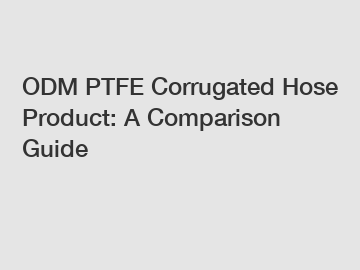
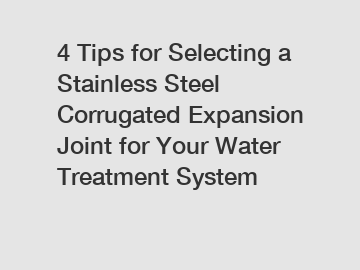

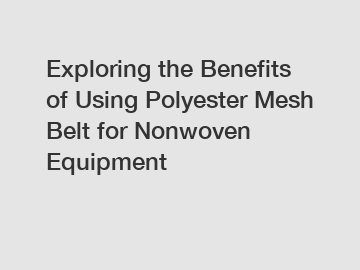
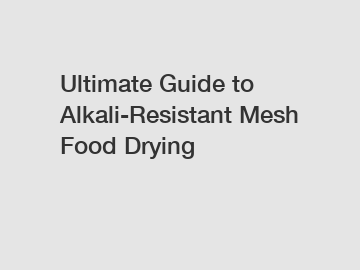
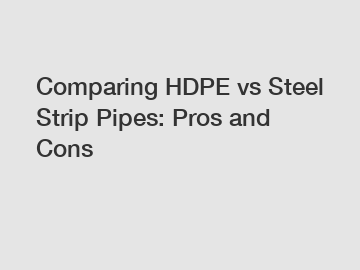
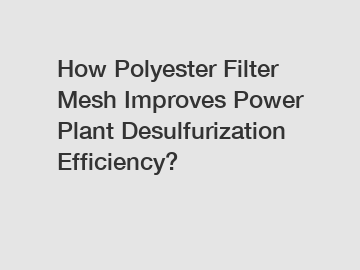
Comments
All Comments (0)